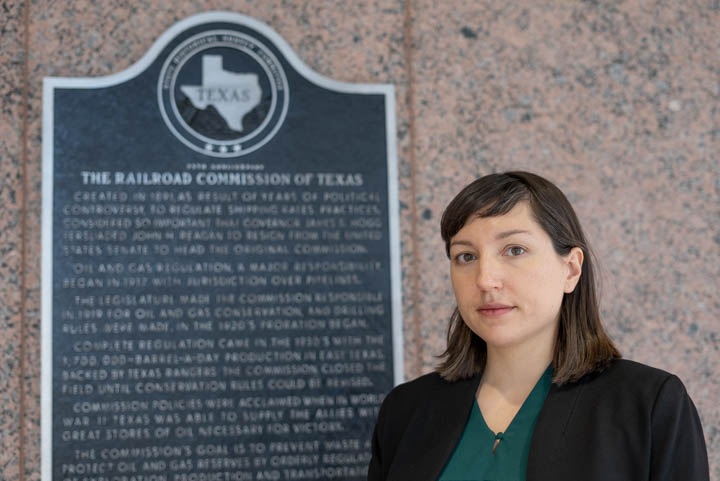LAREDO, TX – The White House Council on Environmental Quality (CEQ) has selected Virginia Palacios as one of the members of a government task force overseeing and making recommendations for Carbon Dioxide Capture, Utilization and Sequestration (CCUS) permitting.
The purpose of the task force is to (1) identify challenges and successes that permitting authorities, project developers, and operators face to permit CCUS projects in an efficient, orderly, and responsible manner; and (2) provide recommendations to improve the performance of the permitting process and regional coordination for the purpose of promoting the efficient, orderly, and responsible development of CCUS projects and carbon dioxide pipelines.
The CEQ is appointing two task forces, one for Federal lands and the Outer Continental Shelf and the other non-Federal lands. Palacios will be serving on the non-federal lands permitting task force, which is most relevant to states like Texas where more than 95% of land is privately owned.
“I’m honored to be selected by President Biden to serve on the task force, and I look forward to serving alongside the other members to protect the health and safety of everyday Texans, and the natural environment we all depend on,” said Palacios.
CCUS raises many concerns in Texas, especially since the Railroad Commission of Texas, (RRC) is applying to the EPA for sole permitting authority over carbon dioxide storage injection wells in the state. The RRC has a poor track record of overseeing underground injection wells, as well as engaging Texans in decision making. Commission Shift has argued that this pattern of weak policy and poor oversight disqualifies the Railroad Commission from overseeing such a complex and significant technology.
Texas produces more greenhouse gas emissions than any other state in the country, and its population has also faced the brunt of extreme weather intensified by climate change. Those damages disproportionately impact Black, Latino, and low income populations.
Palacios notes, “Addressing climate change is essential, but how we do it matters. Climate solutions should protect human health and safety, especially for people who are already burdened by ongoing air and water pollution that is made worse by failing state oversight.”

Virginia Palacios is an environmental science and policy expert with 16 years of experience working on environmental issues. She has expertise in air, water, climate, energy efficiency and oil and gas development, including orphaned oil and gas wells and carbon sequestration. Palacios is also a ninth generation Tejana, and a land and mineral owner in Webb County, Texas – one of the highest gas-producing counties in Texas. Approaching her work through a lens of equity, Virginia seeks to eliminate disparities in public health outcomes that occur on the basis of race, ethnicity or income. She founded Commission Shift, a statewide organization based in Webb County, to create a platform for holding state regulators accountable in communities heavily impacted by oil and gas development.
Previously, she was State and Local Policy Manager at South-Central Partnership for Energy Efficiency as a Resource and was an analyst with Environmental Defense Fund’s (EDF) oil and gas team for five years. At EDF, she also co-chaired the staff Diversity Committee and helped to launch environmental justice programs in South Texas. She later served as a consultant with GreenLatinos, organizing Latino-led organizations across the U.S. to demand equitable federal climate and clean air policy. Her work on estimating greenhouse gas emissions and utilizing cost-effective emission mitigation technologies on local distribution pipelines has been published in Public Utilities Fortnightly, and the peer-reviewed Environmental Science and Technology Journal. In 2018, she served on the City of San Antonio’s Energy & Buildings Technical Working Group for the city’s first-ever Climate Action and Adaptation Plan. She currently sits on the boards of Rio Grande International Study Center and Clean Energy Fund of Texas.